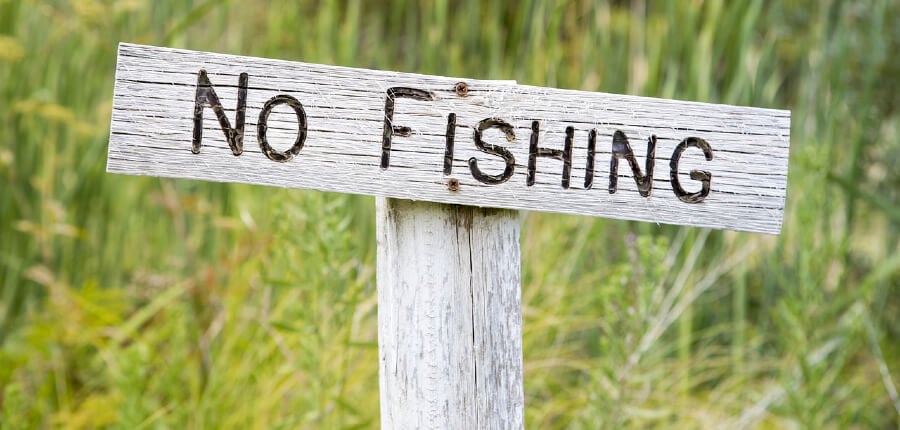Let’s establish this from the get-go: Fish feel pain. In a recent letter in The Guardian newspaper, Dr. Lynne Sneddon, a leading authority on the subject, wrote, “[T]he jury has made its decision and left the building. It is clear that there is ample evidence for pain in fish.” And “sport” fishing is not a game to fish. Eugene Balon, the late University of Guelph ichthyologist, viewed recreational fishing as sadistic. And he’s not alone. Author John McPhee says there is no “play” in fishing: “You are, at best, torturing and at worst killing a creature you may or may not eat. Playing at one end, dying at the other—if playing is what that is, it is sadism.”
As the warmer weather lures more anglers back outdoors, I urge them to keep all this is mind. Impaling gentle animals through their sensitive mouths and watching them slowly suffocate while you pose for selfies with them is cruelty disguised as sport. In a just world, anglers would put away their rods and reels and get hooked on a kinder pastime; at the very least, they should stop pretending that fishing is harmless fun.
Anglers may not want to hear it, but here’s the science: Fish have neurons called nociceptors that detect potential harm, and like mammals, they produce opioids that relieve suffering. Why would they need to do that if they didn’t feel pain? When fish are exposed to painful stimuli, regions of their brain crucial for conscious sensory perceptions “light up,” and they show signs of fear and wariness.
Anglers who still argue that fish “lack the brains” to feel pain have missed the boat. Matt Parker, a senior lecturer in neuroscience at the University of Portsmouth in the U.K., says that “this argument is no longer so convincing. Decades of work show that all manner of shapes, sizes and organisations of brain exist in nature …. [F]ish could have a more sophisticated experience of the world than we imagine, albeit using a brain that’s quite different to ours.”
Fish’s mouths are richly supplied with nerve endings, and removing a hook often results in painful injuries to the fish’s lips, throat, mouth and face—injuries that can easily become infected. Fish who are caught and thrown back into the water often die from their injuries, stress or the loss of their protective outer coating. Last year, in an open letter to the Canadian federal and British Columbia provincial governments, the Union of British Columbia Indian Chiefs stated, “First Nations commonly view [catch-and-release] to be akin to torture, traumatizing the fish and returning it to the water unable to thrive.”
Fish are highly intelligent animals. They form emotional attachments and become depressed when they lose their mates. Like apes and orcas, fish can recognize themselves in a mirror, a classic indication of self-awareness. They have excellent long-term memories, are savvy social learners, develop cultural traditions and use tools.
It’s only a lack of familiarity with fish and an upbringing steeped in speciesism that leads us to disregard their suffering just because we’re bored and want a diversion.
In his controversial essay, Dr. Balon said that he was not trying to start a crusade against recreational anglers. “I would rather try to prevent this from happening,” he wrote. “I believe that humans are capable of fair judgement and of correcting wrongdoing if made aware of it.”
Anglers: You’re on notice.





